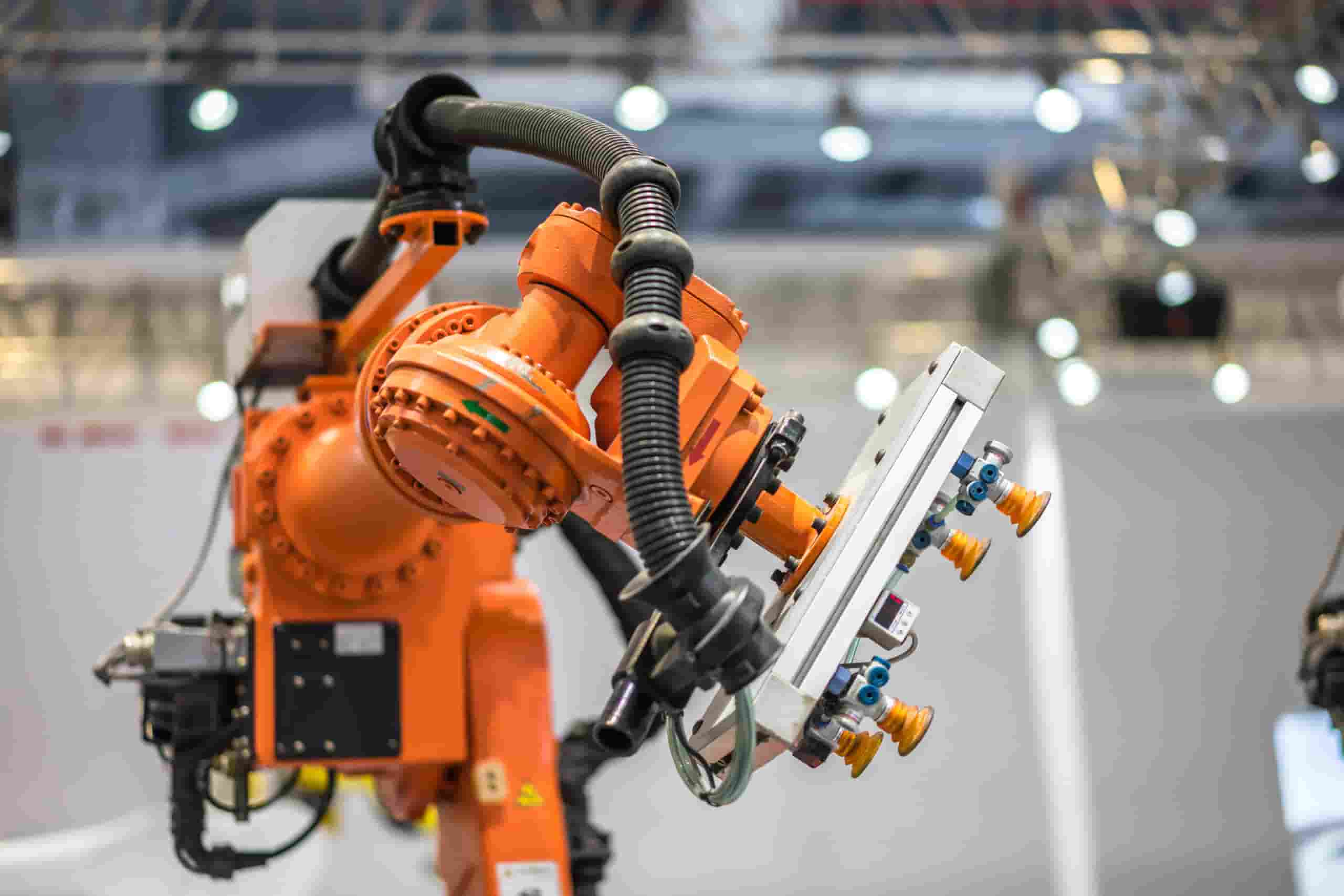Project Highlight: Rapid-Response Automated PPE Production in Shipping Containers
(RACER) – MASCEI
Enabling Manufacturing Automation, Supply Chain Diversification and Addressing the Environmental Impact of PPE
Automated PPE Production Project Team & Funding
AFFOA (Prime Contractor), ARM Institute (Principal Investigator), Henderson Sewing, Sewbo, Siemens, Carnegie Mellon University, Bluewater Defense, and Yaskawa.
Funding for this AI and robotics project is provided by the U.S Department of Commerce’s National Institute of Standards and Technology (NIST).
Automated PPE Production Background & Problem Statement
The COVID-19 pandemic exposed our nation’s inability to rapidly manufacture personal protective equipment (PPE) and other materials due to our reliance on offshore manufacturing. Even beyond pandemics, the nation must be prepared to rapidly manufacture personal protective equipment (PPE), such as in cases of environmental disasters.
This robotics project seeks to catalyze an automated, mobile and deployable solution that can rapidly manufacture PPE, specifically surgical masks and general use face masks, where and when PPE is needed with a minimum of resources, training, and time needed to set up and begin production.
Automated PPE Production Approach
This project leverages collaboration between two Manufacturing Innovation Institutes part of the Manufacturing USA Network – the ARM Institute and AFFOA (Advanced Functional Fabrics of America) – to build surgical and face mask production lines housed within a shipping container, creating the framework of a rapidly-deployed automated PPE production center with a relatively small real estate footprint. The project will also leverage outputs from previous ARM Institute projects focused on robotics apparel manufacturing, including Bot Couture: Robotic Clothing Manufacturing. By using a shipping container, the production lines will be easily transported and set-up and the point of need.
Specifically, this automated PPE production project will work to:
- Create an overall automated PPE production shipping container platform with self-contained, deployable systems that can be shipped via standard logistics networks to any place in need.
- Scale and adapt the ARM Institute’s Rapid PPE Production through Automation & Robotics (RAPPAR) Project, which leverages robotic automatic visual inspection, picking-and-sorting, and end-of-line packing and palletizing for disposable surgical face mask production. The ARM Institute will adapt this project to fit within the space constraints of two shipping containers and streamline end-user deployment steps. In conjunction, the ARM Institute will develop training and operational materials to support ease of use. Validate the functionality of the system for disposable mask production.
- Scale and adapt the ARM Institute’s Built-By-Bot Project mask sewing system to expand its product offering beyond the single design of face masks and to fit the end-to-end production process within a standard shipping container. The team will develop training and operational materials to support ease of use. The ARM Institute will also validate the functionality and performance of the system for reusable general use mask production as well as define a path to produce head coverings (caps) and disposable shoe covers (booties).
The shipping containers will house the necessary production equipment using pre-configured advanced robotics to start producing PPE on short notice. The automated PPE production lines will be able to be taken from set-up to production within days, rather than months.
The ARM Institute’s Role
The ARM Institute will manage the overall project and leverage outputs from prior ARM Institute projects, including those mentioned above. The Institute will also leverage its 450+ member organization consortium with Henderson Sewing, Sewbo, Siemens, Carnegie Mellon University, and Bluewater Defense participating as project team members.
This project will leverage the ARM Institute’s growing internal engineering capabilities. ARM Institute engineering experts will work with the project team to direct the design and development of the system and work closely with AFFOA on reporting metrics and progress.
Next Steps
This project is expected to conclude in calendar year 2025. The system requirements and architectural design has been completed and custom design work is in process. Systems integration began in the third quarter of 2023.
Impact
The Manufacturing USA Institutes are uniquely positioned to rapidly address high-priority issues in U.S. manufacturing and enable innovation in key technical areas. By increasing collaboration between the Institutes, the nation will benefit from solutions that incorporate expertise from the Institutes’ diverse consortiums and expertise that bridge the gaps between industry, government, and academia.
Join our mailing list
ABOUT THE ARM INSTITUTE
The Advanced Robotics for Manufacturing (ARM) Institute is a Manufacturing Innovation Institute (MII) funded by the Office of the Secretary of Defense under Agreement Number W911NF-17-3-0004 and is part of the Manufacturing USA® network. The ARM Institute leverages a unique, robust, and diverse ecosystem of 390+ consortium members and partners across industry, academia, and government to make robotics, autonomy, and artificial intelligence more accessible to U.S. manufacturers large and small, train and empower the manufacturing workforce, strengthen our economy and global competitiveness, and elevate national security and resilience. Based in Pittsburgh, PA since 2017, the ARM Institute is leading the way to a future where people & robots work together to respond to our nation’s greatest challenges and to produce the world’s most desired products. For more information, visit www.arminstitute.org and follow the ARM Institute on LinkedIn and Twitter.
